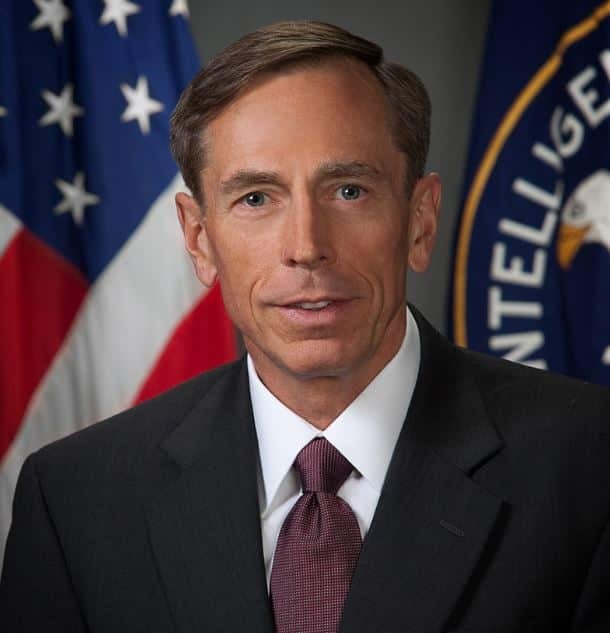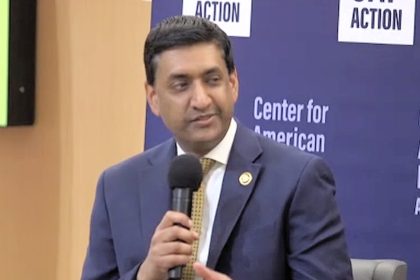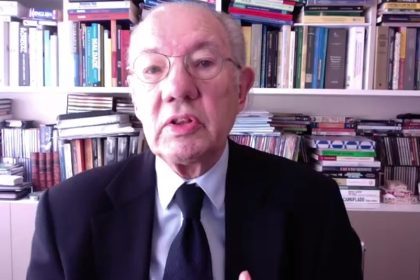Military Thought Leaders Strategize Ukraine War Victory

WASHINGTON — “By and large, this was the Cold War that turned hot,” Gen. David H. Petraeus, U.S. Army (Ret.) and former director of the Central Intelligence Agency, said this week at the Atlantic Council, a D.C.-based think tank. Petraeus was referring to the Russian invasion of Ukraine.
Convening with military thought leaders including Gen. Wesley Clark, U.S. Army (Ret.) and former supreme allied commander in Europe; Gen. Rick Hillier, Canadian Armed Forces (Ret.) and former chief of the Defense Staff of Canada; and Maj. Gen. Mick Ryan, Australian Defence Force (Ret.), Petraeus was considering strategies and needs fundamental to Ukraine’s ultimate success in the war.
One thing they seemed to agree on was that the resolution would be negotiated. But each had a different timeline and terms.
“I believe the end will be with a negotiated resolution,” Petraeus said, offering insights on how he feels one could come about.
“As far as fighting,” Petraeus said, “it’s crucial to recognize the threat right now of Russia to seize the rest of the Donetsk region.”
He pushed for a rush of ammunition and supplies to Ukraine to enable them to maintain territory — and take back regions — and then continued aid including the committed tanks, ammunition, spare parts, and training on the operation and maintenance of any machinery, “to enable Ukraine to hasten the moment to get Vladimir Putin to recognize that this war is unsustainable.”
But in the long term, he said that ministers in Brussels, Belgium, need to recognize some transitions that have to happen, including moving from Eastern bloc fighters to Western ones, creating a foundation for the reconstruction of the damaged infrastructure in Ukraine, and a more robust security guarantee that possibly includes North Atlantic Treaty Organization membership.
Petraeus’ pragmatism was met with a different tone from his Canadian counterpart.
“I do not believe we’re going to change Putin’s mind. We’ll end this war when Putin is gone,” Hillier said.
“[Zelenskyy saying], ‘I’d be delighted to accept the surrender of every Russian soldier standing on Ukrainian soil’ is the start of negotiations,” he quipped.
Admitting Ukraine’s history of corruption is a crucial issue for further support, he worried about “unity and solidness” on the Western front.
“Voters in Western democracies will not support … if they get the perception that [donations] are being stolen” or lining the pockets of politicians, he said.
But as long as Zelenskyy can remain alive and in power, and Russia continues its “leaderless brutal attacks … frontal assaults … and taking thousands of losses,” Hillier said worldwide resistance to Russia would grow.
“The overriding principle of good vs. evil … that’s what’s at stake here,” Hillier insisted.
Clark agreed that “the center of gravity” in this war is “Putin’s mind.”
Suggesting that the current situation was “equivalent to the buildup of World War II,” yet “even more frightening” because of nuclear weapons, he insisted that Ukraine, and the rest of the world, could not afford battlefield failure as it would provide an opening for other expansion of territorial aspiration.
“We’re at an inflection point in world history with this battle,” he said. “However it is settled … moving forward will be different.”
But unlike Petraeus, Clark suggested that allies should “stop responding to Russian battlefield moves and get ahead in the thought process.”
“Let’s figure out how we want the battlefield outcome to be,” Clark said, “and connect the end strategy we’re seeking with the military assistance we are willing to provide. … You would force negotiations that could end this fighting.”
Hillier, Clark and Petraeus also participate in a Strategic Advisory Council, along with Gen. Dick Lodewijk Berlijn (Ret.), chief of Defense of the Netherlands. These prominent military leaders have joined forces to provide support and advice to the Ukrainian World Congress’ “Unite with Ukraine” campaign.
Kate can be reached at [email protected]























